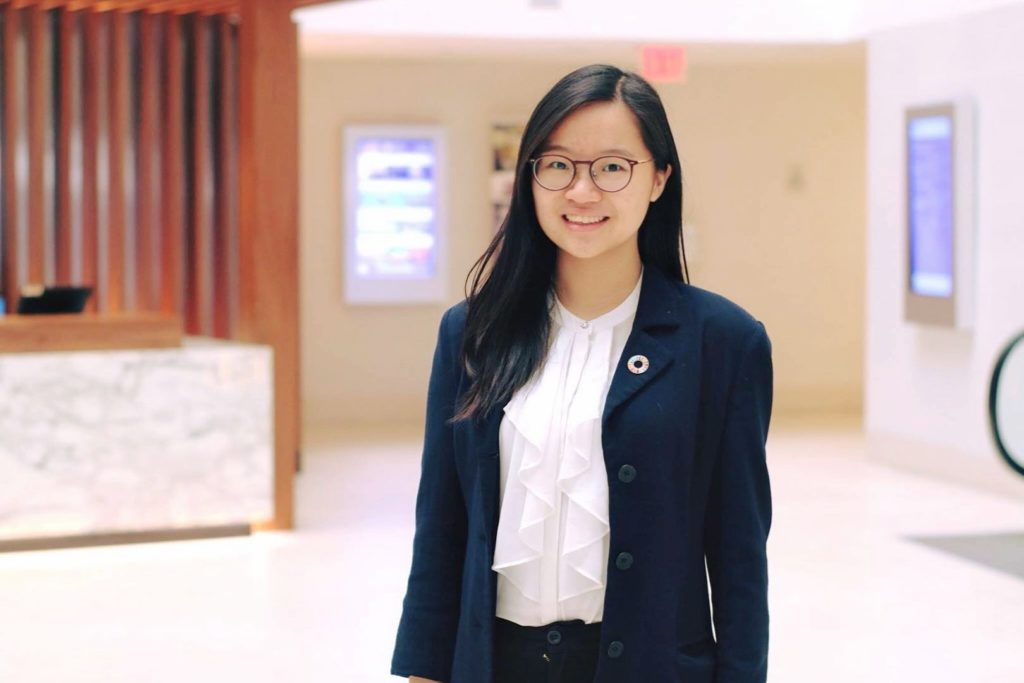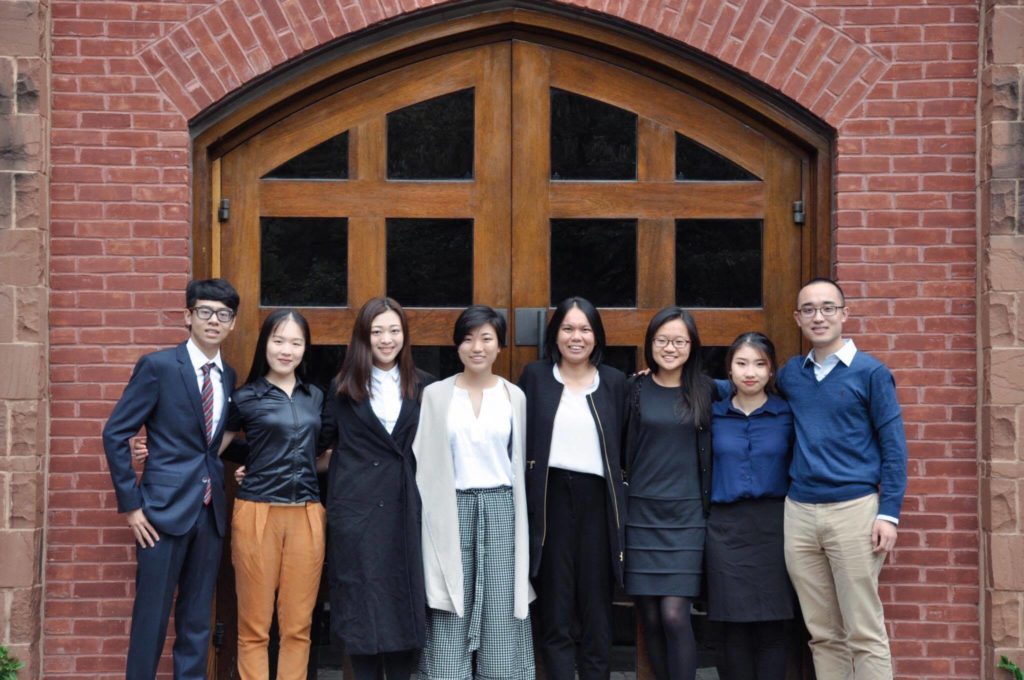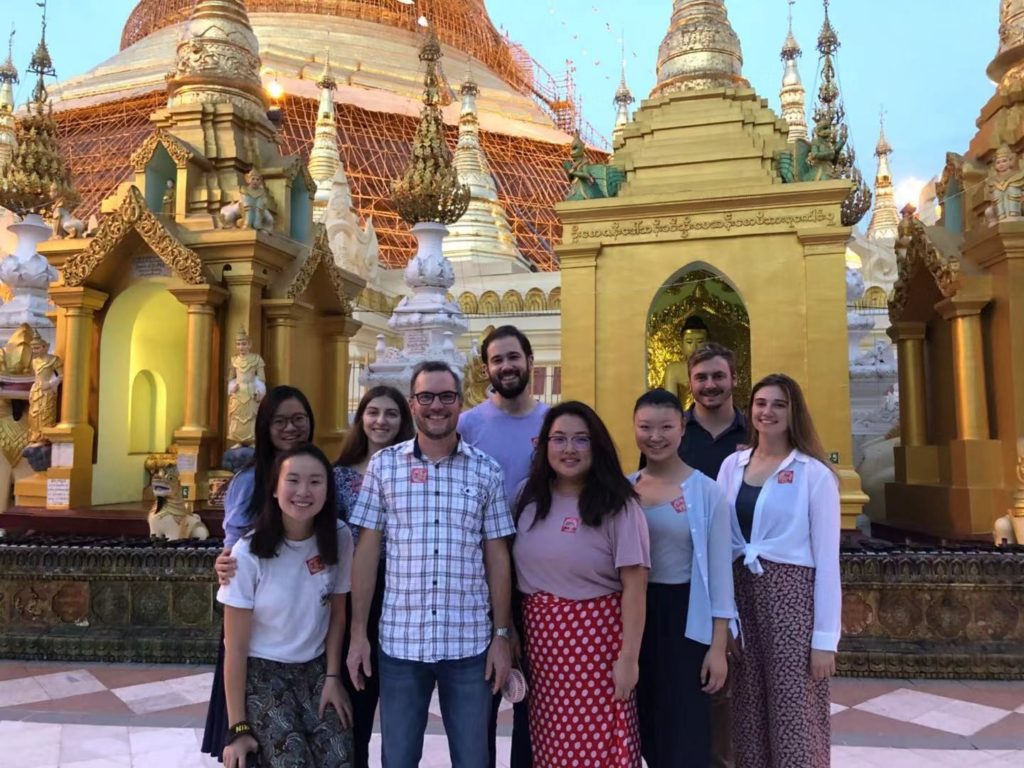From Shanghai to Geneva: Shaping a Global Worldview
“No knowledge is ever wasted – it will unexpectedly enrich who you are.”
Angela Hou (CAS ’19) is a recent graduate of the Contemporary Asian Studies and International Relations programs at the University of Toronto. She is currently pursuing a Master in International Affairs at the Graduate Institute of International and Development Studies (IHEID) in Geneva. Born and raised in Shanghai, China, Angela says her studies in Canada have fundamentally changed her worldview. During her time as an undergraduate student, she was an avid Model UN enthusiast, the Editor-in-Chief of Synergy: The Journal of Contemporary Asian Studies, a leader in various student unions on campus, and a researcher for the G7, G20 and BRICS Research Groups.
What were the highlights of your time at the Asian Institute?
I could go on and on about this! First of all, student groups. CASSU, Synergy – you are my family. Participating in student initiatives allowed me to grow professionally and personally in incredibly meaningful ways.
Secondly, dedicated professors such as Professor Dylan Clark, Professor Rachel Silvey, Professor Lynette Ong, and Dr. Emily Hertzman were conducive to the enrichment of my academic experience. Their expertise shattered what I thought and knew about the world. I came out of every CAS lecture reflecting on how the world is ordered and perceived, as well as my own privilege and positionality in political and socio-economic systems. This reflective experience was very different from many of my other courses. CAS courses are intellectually stimulating in a unique way.
My time at the Asian Institute was also full of experiential opportunities. I had the fortunate chance to conduct research in Taiwan and Myanmar. Those opportunities, as I left U of T, were and are quite cherished. Even in my Master’s program, I look back and miss the experiential possibilities provided by the Asian Institute.
Finally, the staff and faculty at the Asian Institute are wonderful! In the CAS community, I had the unparalleled opportunity to develop meaningful connections of mentorship and even friendship.
How did your degree help you get into the work you do now?
During my time in CAS, I developed a strong interest in China’s role in global governance and international politics. For example, for my undergraduate thesis, I researched China’s investment in Africa under the Belt and Road Initiative and its environmental implications for local communities.
My regional focus has always been East Asia. In my masters-level academic work, I still interact with Asia and regional studies on a regular basis.
CAS also gave me the substantive tools and courage to study a place outside of home. The program taught me how to critically examine my physical environment and complex identities. One’s position in the global system, studying in Canada or Switzerland, shifts how one perceives the space called “Asia” or “China.”
Most of my academic work in the CAS program had a strong focus on China, and the program really helped me learn about China in an interdisciplinary way. For instance, I took anthropology courses, where I learned about China through comparative issue-based perspectives, examining how domestic migration differs between China and other countries. The combination of my undergraduate majors gave me the academic foundation and theoretical toolbox to learn about and analyze a place I call home.
I am incorporating the knowledge gained from my International Course Module experience in Myanmar into my current courses. For instance, I am currently taking a course entitled Global Extraction Networks, in which I am researching China’s extractive presence along its border with Myanmar. For my Global Environmental Governance course, I’m comparing China’s environmental compliance and behavior in formal international organizations and multilateral summits.
What’s your favourite aspect of your current Master’s Program?
The people and the community. IHEID is so diverse, yet so different from the diversity I know from Canada. CAS is the reason why I am so acutely aware of this difference. The overwhelming majority of my peers at IHEID are international students. Most people were born and raised somewhere else, and then moved to Geneva for school. Very few of us are part of a “diaspora” community, conventionally defined. The concept of “second generation immigrant” is the minority here. This is a fascinating dynamic that challenges or shifts my understanding of diversity in a Canadian context.
My favorite conversations thus far have been listening to my globally mobile peers talk about their migration stories and identity struggles. One of my friends is ethnically Korean and born and raised in Guatemala. I often, how does she reconcile the two identities in Geneva? And how does she explain her origins to other people?
What advice would you give to university students that you wished you had known?
No knowledge is ever wasted. If you put in the time, work and effort, you will get something out of it. If you take a CAS class that you never thought you would have taken, embrace it. That knowledge may serve you later down the road, whether in the form of an interesting conversation at a cocktail party, or a spark of inspiration for what you might pursue in your career. Nothing in this world will ever be a waste of your time – it will unexpectedly enrich who you are.
For all students – but CAS students, especially – take advantage of extra-curricular opportunities! Get involved, and make friends! For me, extra-curricular experiences were just as rewarding as my formal education. It’s all part of the experience – I think that it is somewhat incomplete to just take CAS201 and walk away. Throw yourself into the experiences this university and program has to offer. Of course, still do your course readings! But everything you pick up along the way, inside or outside the classroom, will help you down the road.


